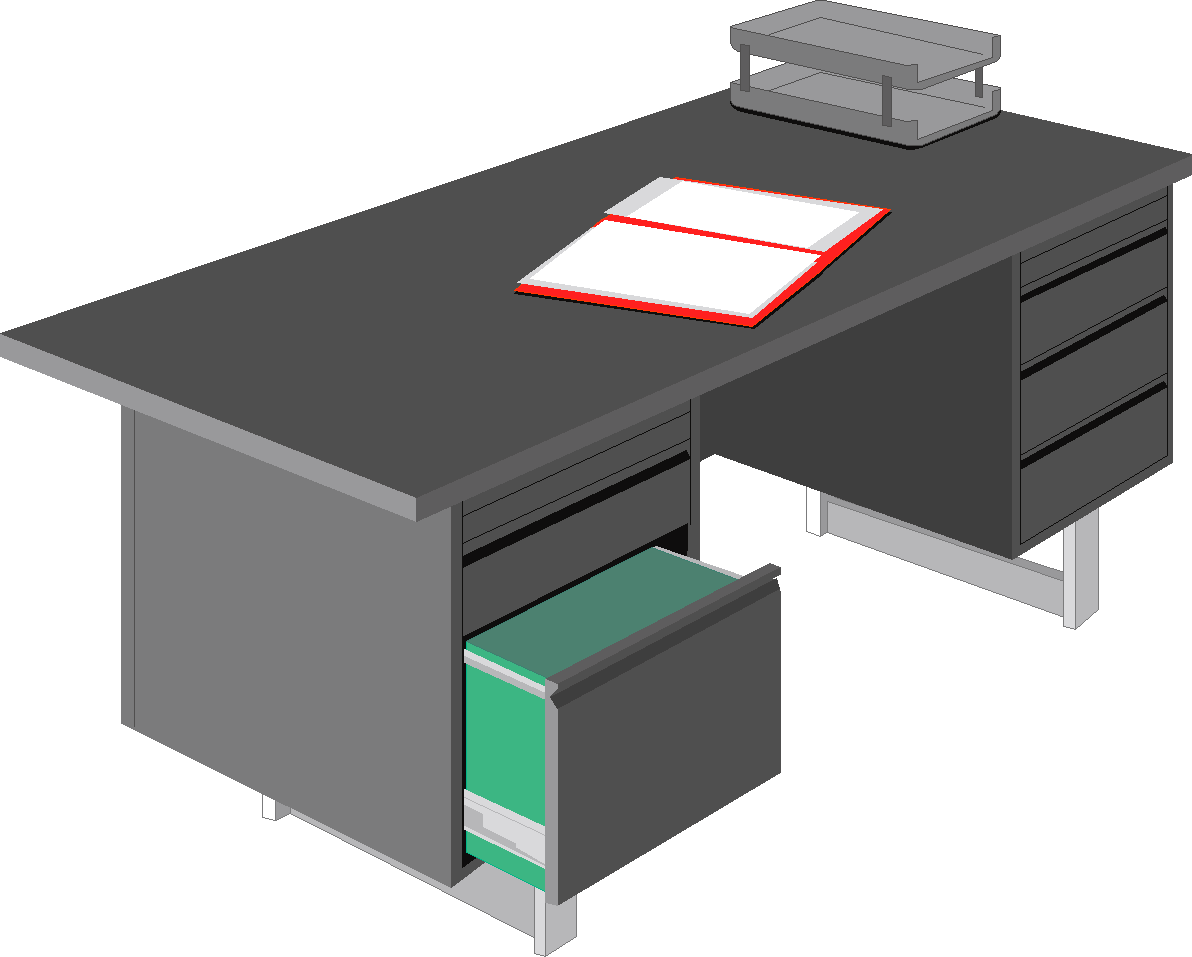Motivating children in poorly resourced language learning environments
Organization of the syllabus and overcoming broader constraints
C34 - CONFERENCE OF MIDDLE SCHOOL FRENCH TEACHERS
GLYN HOUSE, EWELL
19 and 20 JANUARY 1977: 9.30 a.m. to 4 p.m.
Wednesday, 19 January |
Mr Ted Power - Mayfield CM School |
Middle School French Teachers have to come to terms with two sets of values and objectives as well as two kinds of organisation.
As French Teachers, we are aware of the necessary conditions for effective language study. We are free to determine the methodology adopted during French lessons and to select materials within certain guidelines. We can therefore organise from within.
But we also have to come to terms with the organisation, values and objectives that are outside our jurisdiction: those belonging to the Middle School. We are organised from outside, and not in the same way as someone teaching in a language school might expect to be organised.
While we are sometimes cast as 'French Specialists', we are without our private surgeries. We are French Teachers in Middle Schools with the task of using what influence we have to convince the captive learner as well as those who are claiming time and resources to achieve different objectives, that French is important. We are organised from outside not always in the way that we should want to be.
My talk will now divide into two parts:
1. Organisation from outside: This will relate fairly closely to my philosophy (by this, I mean 'values and broad objectives') in teaching French. I shall be concerned about the right setting for effective language study.
2. Organisation from within: This will relate to classroom preparation, selection and organisation of materials and methodology - the factors over which the French Teacher has a very large degree of control. There will be close reference to the need for continuous assessment.
The premise, which draws both parts of my talk together, is that French is important. It must be seen to be important both within the school and within the classroom. We must use our influence both as Middle School Teachers and as French Teachers to see that this message gets through.
Although French, like Maths and English, is a compulsory subject in many Middle Schools, the position of being both 'Middle School' and 'French' teacher is a minority one on many staffs. While few class teachers would admit to ignorance of Maths and English, many will readily parade ignorance of French. Even teachers with some knowledge of French, will openly express reluctance to teach it.
However, if children perceive that knowledge of French or enthusiasm to use it is confined to a minority of teachers, they can be expected to question its status as a compulsory subject and indeed question its importance. In effect, children are being asked to accept a value which has not been accepted by the generation before, not even by the generation of Middle School teachers immediately before.
When I did my postgraduate year of teacher training (1972/3) for the Junior/Middle age-range, Science was a compulsory curriculum study, as was craft, drama, music and educational technology. French was one of four or five special options, to be taken as an alternative to such options as remedial teaching and the teaching of immigrants. (My College of Education was in Reading, Berkshire - a town with a sizeable immigrant population).
Most of the students in my year who were destined to become Middle School teachers made no study of French.
If French is seen in the Training Colleges as something a Middle School teacher can steer round, there is a danger that it may appear to Middle School pupils as something they can also steer round.
The existence of a minority of teachers able or willing to teach French has other repercussions that we must counter.
Firstly, healthy discussion of methodology cannot be spread around the staff-room on the same scale as in other important subjects. The French Teacher who fails to keep his methodology to himself feels perpetually apologetic in the company of those who cannot share his experience.
So... if you want to talk about methodology, now is your chance before you go back to the staff-room!
In the face, of children's attitudes towards French and the indifference of other teachers towards French, great resilience is needed in order to hold onto the belief that French is important.
The second pressure on a small contingent of Middle School French Teachers is the ease with which French may be interrupted throughout the school in a tight staffing situation. If a French Teacher's labour is called upon to cover an absent class-teacher, French may virtually disappear from the timetable.
We know that, where time is already insufficiently allocated, the loss of lessons breaks the continuity of both planner and learner. Lesson plans have to be redrafted, once material is no longer fresh in the minds of the learners. It is often 'back to the drawing board' with several classes at once - an unwelcome price for becoming a class-teacher for one or two days.
In short, French will never seem important to anybody unless possible conditions for effective teaching prevail. A French Teacher operating on many levels at once - with responsibility for 'one too many' French classes possibly of more than reasonable size - may find success only in keeping things going badly.
For real success, entries in the mark book have to be planned rather than left to chance. Keeping good records of children's progress in all language skills is essential if they are to conclude that their own efforts are important.
My intention in dwelling on what I call 'organisation from outside', is not to spread gloom, neither is it to escape the responsibility of countering weaknesses in organisation, on all levels. A diagnosis of 'common weaknesses in Middle School organisation with reference to language study' is only useful if it signposts changes that we can help to bring about.
Sometimes, a clear diagnosis on the part of a French Teacher communicated to his or her head-teacher or to the person planning the timetable can achieve quite a satisfying degree of change.
As a basis for comparison, I should like to describe the organisation of French at a Middle School of an acquaintance working in Redditch.
The school has four year groups, each consisting of 4 classes. 3 out of 4 teachers in each of the year groups teach one or two classes for French. No teacher takes more than two French classes, and no teacher has to teach outside their own year group unless they want to gain experience of a different level. Five '35 minute' French lessons are given each week to each pupil. Last year, the school took a party of 70 children on a school visit to France with Northern Schools Travel for a period of two weeks.
I would suggest that, in this school, French looks important.
I now wish to talk about the organisation over which we as French Teachers have a large degree of control: the considerations involved in planning a French programme, teaching techniques and materials, teacher psychology, methods of assessment - what I have termed 'organisation from within'.
I have described conditions in a Redditch Middle School where the setting would appear to favour successful language study. However, results at this particular Middle School left much to be desired. The newly appointed Head of French approached the local Secondary School in Redditch and asked her counterpart there:
"What do you expect our pupils to know when they come to you?
Somewhat surprised that liaison was taking place, the Secondary School French Specialist
replied:
"Judging from previous experience of intakes from your school, we don't expect them to know anything!"
The Middle School Head then asked:
"What would you like to expect them to know?"
The dropout rate in Modern Languages has been tragically high, and this has been true nationally. It is clearly not entirely due to the factors described in the first section of my talk.
My Redditch acquaintance (Gillian Ball) suggested that many of her teaching colleagues blamed the Nuffield "En Avant" course for the poor levels of achievement, while making little attempt to part from it or adapt it to the needs of their classes.
Even with a relatively generous allocation of French Teaching time, she sensed a lack of continuity in what was taught and the way in which it was being taught.
The question that I shall now attempt to answer is this one:
How do we organise and select material in a way that may lead to an improvement in attitudes and achievement?
Before embarking on an elaborate scheme of work, it is essential to understand the existing attitudes of the pupils. There are two extreme attitudes that often appear together in classes where there is a wide divergence of ability:
- 'French is an effortless game which we need only observe.'
- 'French is too difficult - an unfair challenge'
Both attitudes result in a lack of participation - the very thing one wants to avoid in a language class.
The 'joke atmosphere' implicit in the first attitude, can be caused by:
- a surplus of language teaching games;
- excessive joviality on the part of the teacher;
- selection of visual aids which cause more distraction than they are worth;
- using courses with story lines that are too young for the pupils.
Changing this attitude involves the selection of materials that are more likely to lead to serious participation; it may also involve the detention of those pupils who will more readily perceive the more serious aspects of the work outside school hours:
The extreme response, which is by far the more worrying, is the second one - the attitude that 'French is an unfair challenge'.
To change it, we have to ensure that everything organised - whether it is a presentation, an exercise or an activity, carries an invisible stamp which reads: 'French is both a stimulating challenge and a fair one'. What does this mean?
Firstly, the inputs that we introduce are often too large in the context of limited lesson time (e.g. a 30-minute slot). Children know when completion of a task in the allotted time is unlikely.
Long written exercises or long essay titles, therefore make unrealistic demands in the framework of a French lesson. They create differences in accomplishment and feelings of resentment and non-achievement. Small inputs are always advisable. Small exercises consisting of 3 or 4 lines invite participation and reduce feelings of non-achievement to insignificant proportions. Unfortunately, they do not give the teacher with several successive 30-minute slots much time to settle. They can demand a continuous performance:
Secondly, in order to avoid an unfair challenge, we must not make unfair demands on children's self-confidence. Oral work can easily expose children in front of their friends. It invites hesitation but at the same time demands complete obedience (conformity to a model). It is not surprising that children often refuse to accept the terms of such a challenge. A fair oral challenge is therefore one that is designed to promote confidence rather than to trap. It should provide pupils with a degree of latitude in their responses.
Thirdly, insufficient presentation or development of teaching points often results in an impossible challenge. Most of us will at one time have allowed the tape-recorder to run for too long or will have read for too long amid a sea of blank faces. The dialogues of Nuffield 'En Avant' Stage 2, are laden with teaching points (e.g. language structures) that are not listed in the units in which they appear. It is often assumed that the points have been covered in previous units, but it is often forgotten that children have short memories.
If teachers work through the course material per se, given the interruptions to the school timetable, their working assumptions are unlikely to result in a fair challenge. The solution is to take greater control over the use of course material, and I shall be looking at how this can be done.
Successful control over teaching material implies the existence of clear aims and objectives, which can be gauged by both teacher and pupils, and the presence of suitable and accessible material (e.g. visual aids).
If pupils are to believe that French is important it must be shown to be functional. Language structures must be shown to perform useful functions apart from serving a story-line involving childish characters (e.g. Georges, Xavier, Neron) which pupils may not care much for.
In the absence of a textbook, pupils must be presented with an alternative gauge of progress - a prospectus or checklist providing some evidence of a syllabus: a permanent document to which they can refer. French will not succeed where there is lack of clarity in relation to its aims and purposes, and where the teacher requires pupils to accept the challenge blindly without giving them any means for self-assessment.
The new "En Avant" Stage 1 is a helpful manual since different conversational skills are clearly visible to both teacher and learner, and form the basis for assessment. Inputs are not too large and can be seen to serve valuable functions. Both teachers and pupils can isolate the different language skills, write short descriptions of the functions that they perform, number each function so as to keep a checklist of what is being taught and learnt. The functions may then form the inputs of extended dialogues that could be similarly mapped.
The comparison between the new "En Avant" Stage 1 and the old 'En Avant" Stage 2 (which has not yet been revised) is an interesting one.
Stage 2 gives the teacher or planner all sorts of difficulties. For example, if we use the teachers' notes to Stage 2 Unit 2, as a basis for planning a module of work, the first thing we read is:
NEW TEACHING POINTS/SENTENCE PATTERNS: Nil.
The fact remains, that many sentence patterns are used in the 'Background Information: the 'Synopsis of the Situation' and the 'Situation' itself.
Unless preparatory work is done on these patterns in the same lesson as they are used, they will pass through the children's ears unremembered.
Unit 2 is sustained by 7 items of vocabulary, consisting of 3 irregular verbs, 1 regular verb and 3 nouns. The teacher is required to follow the recommended routine of moving from 'Background Information' to 'Synopsis of the Situation' to the 'Situation', interspersing developments, games and taped exercises between these key sections.
Faced with material of this type, both teacher/planners & pupils have a very poor definition of aims and objectives. They are left to follow the familiar Nuffield "En Avant" Stage 2 routine.
Unsure of what is being taught, the teacher ends up by trying to make the meaning clear at all stations along the line. The teacher is also left to sort out the aims - the necessary skills or targets that will allow the child to understand the main situation or dialogue before proceeding to he reading phase (where learners are permitted to see the written word).
|
EN AVANT STAGE 2 |
|
|
BACKGROUND INFORMATION |
Usually rather inadequate as such. |
|
SYNOPSIS OF THE SITUATION |
Often in Indirect Speech. Little progression towards an understanding of the main dialogue: Direct Speech. |
|
THE SITUATION |
The important part of the unit. It relates directly to the 8 picture posters. Use of Spaced Repetition (the 'Say after me' phase on tape) is suspect : |
"Wide scale investigations carried out in recent years have shown that constant repetition after the tape-recorder quickly becomes non-productive. Most children dislike repeating after a disembodied voice. The tape recordings for Stage1 have been designed more as 'scene setters' than as models for repetition. Therefore, there are very few spaced versions. Children much prefer to do any necessary repetition after the teacher and for that reason familiarity with the recordings is vital." [Introduction to Revised Stage 1].
Poor definition of aims in Stage 2 is the product of both lack of focus in the content and poor methodology. There is too much distraction in the form of too many unnecessary hurdles before the learners are permitted to proceed to the main part of each unit. As admitted in the Revised Stage 1, part of the methodology used in the focal section of the units, has been found to be non-productive.
The aims (numbers 3a, 3b & 4,) of the revised Stage 1, provide useful guidance for teachers who are sufficiently committed as to attempt to translate the aims of Stage 2 into terms which the pupils can understand:
(3) To demonstrate how the pieces of language learned:
(3a) fit together in real life situations.
(3b) recombine in different situations.
(4) To enable the teacher to assess pupils' progress objectively in a series of "jeux tests" - the "jeux tests" are of a form which enables pupils to itemise the skills they have acquired in learning to handle the language requirements of different situations.
I believe it is vital that our schemes of work should allow not only teachers, but also children a means of gauging their own progress in their part of the language lesson. To remove such a gauge, is to remove the motivation of the learner.
The remaining problem is to provide children with some form of map, showing the skills that the Nuffield "En Avant" course purports to teach them. To do this, the teacher needs a very clear idea of those skills involved in the work of each Unit. Stage2 Unit 2, could be adapted in the following way:
|
1. Asking about a friend's particular tastes * Qu'est-ce que tu aimes? |
2. Saying what you like and don't like : * J'aime les chiens. * Je n'aime pas l'école. |
|
|
|
|
||
|
Giving a sequence of orders: |
Asking where a friend is going: Où vas-tu? |
|||
|
|
|
|
|
|
These skills were selected with the 'Situation' (the focus of Unit 2) in mind. Children can copy this table into their exercise books together with accompanying visuals.
The visuals can be based on vocabulary in Unit 2 as well as familiar vocabulary that may also be used to extend practice to other contexts. Likes & dislikes can be practised in a variety of contexts. In this way, Nuffield "En Avant" Stage 2 can be adapted to serve both parts of aim (3) in the revised Stage 1.
I recommend the above procedure as an alternative to using the rather flimsy 'Background Information' and the confusing 'Synopsis of the Situation' sections which are offered as the lead-in (for purposes of pre-teaching & setting) in Stage 2.
Greater clarity as to which skills are being learnt and taught can greatly facilitate the process of Continuous Assessment.
Children can be called upon to display the pictures in their exercise books that provide a visual index for the skills to be tested. Pages or illustrations can be numbered to correspond to verbal descriptions of the skills on a class checklist.
Children can test each other by randomly selecting a page number, or the teacher can test them informally. Four different symbols can be pencilled in on the checklist. Each will represent a degree of mastery in the learning of a particular skill. The learning task is completed when a satisfactory standard is reached and the A symbol has been earned.
In extracting those skills which we wish to include in our inventory from our course material, we should try not to select items of linguistic complexity such as will accentuate divisions within the class. The new Mary Glasgow "Eclair" French course (centred on the port of Dieppe) shows that it is possible to build the syllabus in terms of usable vocabulary (including words which act as useful prompts). Teaching 'French for Survival' need not involve an incline of ever increasing difficulty.
Each Unit of "Eclair" contains categories of core material which most pupils in the class should be able to master. The other categories, designed to 'stretch' the more able linguists become progressively more expendable. Different checklists could be issued on an individual basis to learners who are able to tackle the more expendable categories. The common core material is such as to provide a useful educational experience and to present a fair challenge to all.
 ?
?





